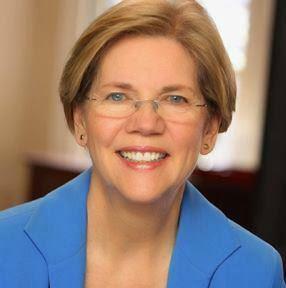 The Republican idea to improve the economy is to deregulate Wall Street, and let the giant banks do what they want. But that is exactly what led to the financial meltdown during the Bush administration. Senator Elizabeth Warren tells us that rules are necessary in the financial industry -- to protect consumers and to make competition fair in the industry. She says (and I agree with her) that the financial markets simply work better when they have rules. Here is her latest article on this subject:
The Republican idea to improve the economy is to deregulate Wall Street, and let the giant banks do what they want. But that is exactly what led to the financial meltdown during the Bush administration. Senator Elizabeth Warren tells us that rules are necessary in the financial industry -- to protect consumers and to make competition fair in the industry. She says (and I agree with her) that the financial markets simply work better when they have rules. Here is her latest article on this subject:For too long, the opponents of financial reform have cast the debate as an argument between the pro-regulation camp and the pro-market camp. They generally put Democrats in the first camp and Republicans in the second.
But that so-called “choice” gets it all wrong.
Rules are not the enemy of markets. Without some basic rules and accountability, financial markets don’t work. People get ripped off, risk-taking skyrockets, and markets fall apart. Rolling back the rules or firing the cops can be profoundly anti-market.
Republicans claim – loudly and repeatedly – that they support competitive markets, but their approach to financial regulation is pure crony capitalism. It helps the rich and the powerful protect and expand their wealth and their power – and leaves everyone else behind.
This week, I gave a big policy speech where I presented ways we can promote competition, innovation, and safety in financial markets. The speech was long and wonky, but it really boils down to two principles:
- First, financial institutions shouldn’t be allowed to cheat people. Markets work only if people can see and understand the products they are buying, only if people can reasonably compare one product to another, only if people can’t get fooled into taking on far more risk than they realize just so that some fly-by-night company can turn a quick profit and move on. That’s true for families buying mortgages and for pension plans buying complex financial instruments.
- Second, financial institutions shouldn’t be allowed to get the taxpayers to pick up their risks. That’s true for using insured deposits for high-risk trading, and it’s true for letting Too-Big-to-Fail banks get a wink-and-a-nod guarantee of a government bailout.
Changes like these can make a real difference. They can help protect hard-working families from cheats and liars. They can help rein in the lawless practices that are still too common on Wall Street. They can end Too Big to Fail.
The secret to better markets isn’t turning loose the biggest banks to do whatever they want. The secret is smarter, more structural regulation that forces everyone to play by the same rules and doesn’t let anyone put the entire economy at risk.
The key steps aren’t hard. It just takes political courage – and a strong demand from people like you – to complete the unfinished business of financial reform.

